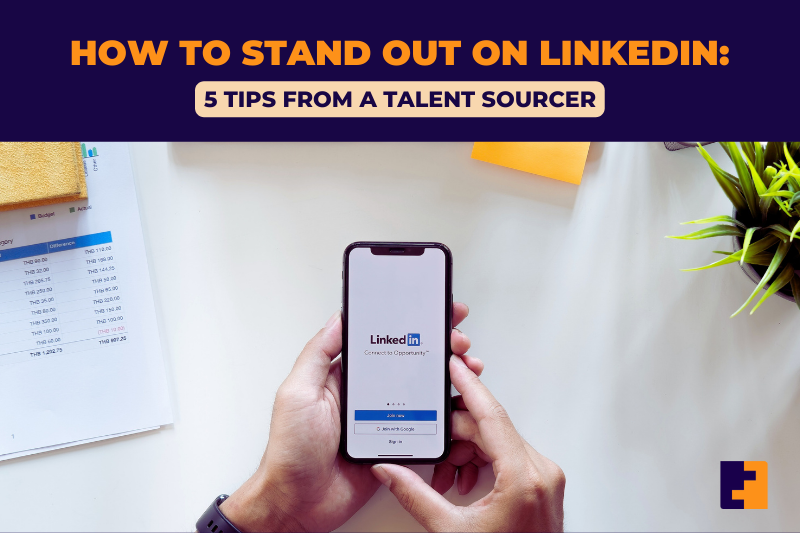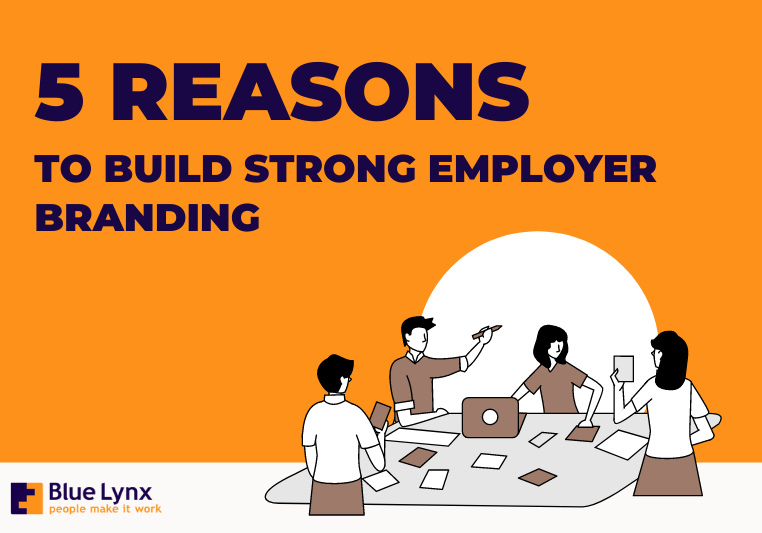Based on the latest research, over 80% of employers claim that employee referrals offer optimal candidate quality and are decidedly more cost-efficient. Still, according to a LinkedIn report, over 77% of recruiters scout and vet future employees on the platform. What is more, Forbes confirmed that 95% of recruiters search LinkedIn for job candidates. Whether recruiting management or C-level applicants from anywhere in the world, it is easier to do it with LinkedIn.
With over 849.6 million members in 2022, the platform is built entirely to recruiters’ advantage and is often chosen for its sizeable user base. It has become the backbone of recruitment marketing today, as it makes sourcing the right candidates a breeze when used correctly.
Back in the day, it was optional to have an active LinkedIn account. The most common practice by businesses was face-to-face interviews. But today In 2023, those numbers have been steadily increasing. Times change, and we need to keep up, especially with the post-pandemic new normal.
For businesses that are looking to keep up with the fast-changing labour markets and streamline recruitment processes, the value of a well-kept LinkedIn account is indisputable.
If you are wondering what you can do to make your LinkedIn profile stand out, know that you’re in the right place.
Here are 5 invaluable tips on how you can spruce up your LinkedIn profile and wow recruiters at first glance!
Add keywords to your profile
Include relevant keywords in your summary and other sections of your LinkedIn profile. They are a powerful marketing tool that you can use to your advantage. Make sure that your profile is properly optimised for search to make the most of it and increase your chances of getting spotted. What is more, adding keywords to your profile helps sourcers find the necessary information they need fast and easily.
How do I optimise my profile?
To select the right keywords for your account, firstly you should do a thorough search with the relevant titles and jobs. Browse job descriptions related to open positions in your field of expertise. Go for the skills and responsibilities that you come across most frequently and list them in your profile description text.
Why is it important to use the right keywords?
When sourcers search for eligible candidates, they will use certain terms, and if you match them, you will fall onto their radar. Once you have them landed on your profile it’s time to make the best impression.
If you’re wondering where to start from or which keywords make a difference when it comes to attracting the talent-sourcing teams, here are a few pointers that may help you find the right structure:
- Industry name
Anyone who searches for employees with the same job title and responsibilities as you will likely use some of those common words and phrases in their search parameters. Creating a strong LinkedIn profile that uses those terms, you can make yourself more visible to recruiters and others with an interest in locating people in your field.
- Career-specific terms
Most industries have their inherent lingo. This is why it makes sense to include them as keywords in your profile. Whether they entirely portray your competence or just partially, it is vital to have them as a part of your description to ensure better visibility.
- Experience-related vocabulary
If you want to ensure faster and more efficient discoverability, do some quick research on what kind of jargon is used to describe your position in the industry. Hence, if you’re on the hunt for an entry-level job, it wouldn’t make sense to include phrases like “leading a global cross-functional project team” in your LinkedIn profile description.
- Consider your target audience
Be mindful of your tone and the impression that you want to convey to your target audience. Pro tip: You’d want to have an informative yet impactful message. Emojis are a great way to add to that effect.
Have a professional profile picture
You know you have only one chance to make a good impression, and your headline can say a lot about your personality. Appearance matters – a photo of yourself serves as an introduction to who you are, and creates a lasting impression, according to research.
Make sure you have in mind the industry that you are working in when looking for the best LinkedIn profile pictures. It doesn’t have to be the perfect suit and tie image as long as the area that you work in allows certain liberties.
A presentable-looking profile photo is an opportunity to show your audience (and most importantly, potential sourcers) that there is a genuine person behind your online identity. Moreover, according to statistics, LinkedIn users with photos benefit from greater engagement; they’d get as many as 21 times more views on their profiles and 9 times as many connection requests.
Highlight your skills
Remember how we talked about keywords earlier? LinkedIn must categorise you as a professional in some manner, so the algorithm searches through your profile for mentions of particular keywords. The more often a term is used, the more LinkedIn believes you are an expert in that field.
What’s more, your skills are one of the top things sourcers will look at.
Just like in your CV, how will they know what you are capable of if you don’t put it out there?
Your LinkedIn profile allows you to highlight your talents, abilities, and knowledge. It can help show off your abilities in a manner that a resume cannot.
Add any certificates you have
These are the valuable accomplishments that will give you an advantage. Invest in learning something new or certify a skill you already have.
A well-written profile can highlight your qualifications in a given industry, and highlight any certificates, honours, or accreditations that you have received. And it can help identify any unique assignments or duties you have held at work, therefore helping recruiters assess how eligible you may be for a particular job.
Ultimately, it helps people find your profile faster and will ensure that you find your next dream job in no time.
What kind of skills to add to your profile?
- Skills that are trending for your industry (both soft and hard)
Pro tip: Examine the job descriptions for the positions you are interested in to figure out the ones that are right for you.
- Universal skills
Think about what skills can you transfer from your previous job to the new one. Skills that are universal and can be applied to different fields (time management, giving/receiving feedback, etc.) You can transfer these talents from one job to another, even if they are in completely different roles.
For instance, positions in sales can frequently be transferred from customer service. Communication skills can develop through de-escalation.
Pro tip: Try not to fall into overusing terms like “excellent communicator”; everyone is easily put off by cliches.
Don’t forget the Open-to-work filter
This tool helps you inform potential employers, recruiters, and others in your network that you’re looking for work. You do this by selecting either “share with recruiters exclusively” or “share with all LinkedIn members”.
That green banner is extremely useful and eye-catching. It lets sourcers know you are open to being contacted.
Is it good or bad to be open to work on LinkedIn?
Robert Hellmann, Career & Executive Coach, recommends selecting ”Share with recruiters only” according to his article on Forbes. Based on his experience in training recruiters, he claims that they do use the open-to-work field in their talent searches on the platform.
To sum it up
LinkedIn is a straightforward, yet powerful, and simple-to-use tool that can help you find your dream job. If you follow our 5 tips and examples of how to stand out on the platform, you will be easily noticed in a sea of applicants. It will help you advertise your knowledge and abilities, and demonstrate to potential new employers how you can help their businesses become more successful. Visitors should find your page visually appealing and find it simple to understand who you are and what you can actually accomplish for them professionally. Ultimately, these LinkedIn profile-building tips aim to give you a head start on creating a strong profile and ensure your long-term success.










![Education vs. experience [Title] Job requirements: Education vs. experience](https://bluelynxcareers.bg/wp-content/uploads/bb-plugin/cache/Job-requirements-education-vs-experience-landscape-1ec43d95a48ad704bd7217ec829c042f-.png)


![Unlocking the Connection between Sleep, Work, and Productivity The Importance of Quality Rest for Optimal Performance [Title] Unlocking the Connection between Sleep, Work, and Productivity The Importance of Quality Rest for Optimal Performance](https://bluelynxcareers.bg/wp-content/uploads/bb-plugin/cache/Unlocking-the-Connection-between-Sleep-Work-and-Productivity-The-Importance-of-Quality-Rest-for-Optimal-Performance-landscape-2b91ccd746800d863e8c65276c6876c9-.png)
![Attracting Talent and Driving Innovation The Role of Sustainability in Modern Business [Headline] Attracting Talent and Driving Innovation The Role of Sustainability in Modern Business [Headline]](https://bluelynxcareers.bg/wp-content/uploads/bb-plugin/cache/Attracting-Talent-and-Driving-Innovation-The-Role-of-Sustainability-in-Modern-Business-landscape-7f26c9342f1650800e5633d1b4424d68-.png)

![Toxic productivity [Title] Toxic productivity](https://bluelynxcareers.bg/wp-content/uploads/bb-plugin/cache/Toxic-productivity-landscape-ce165975805cbbc4b58e4c23cf758014-.png)